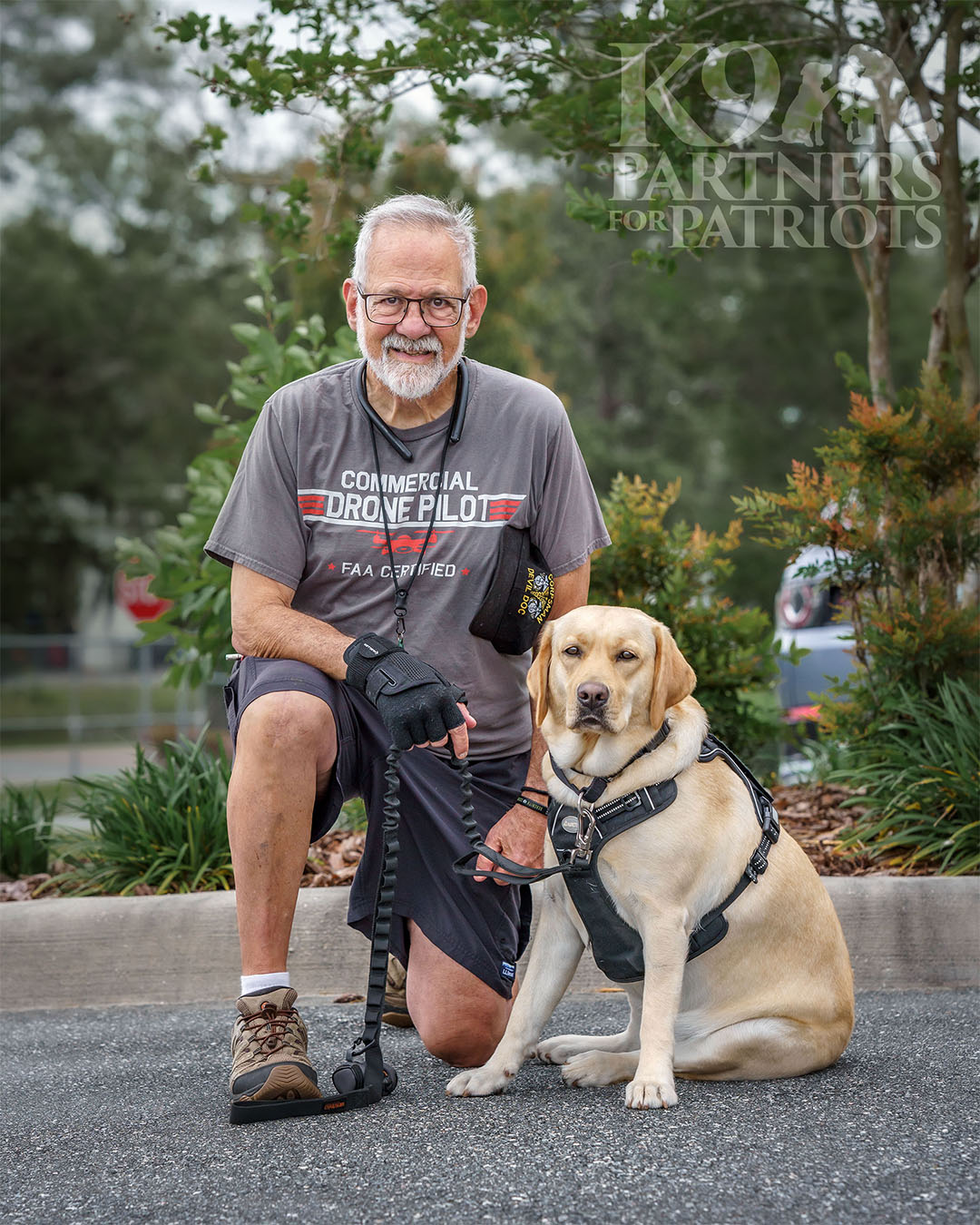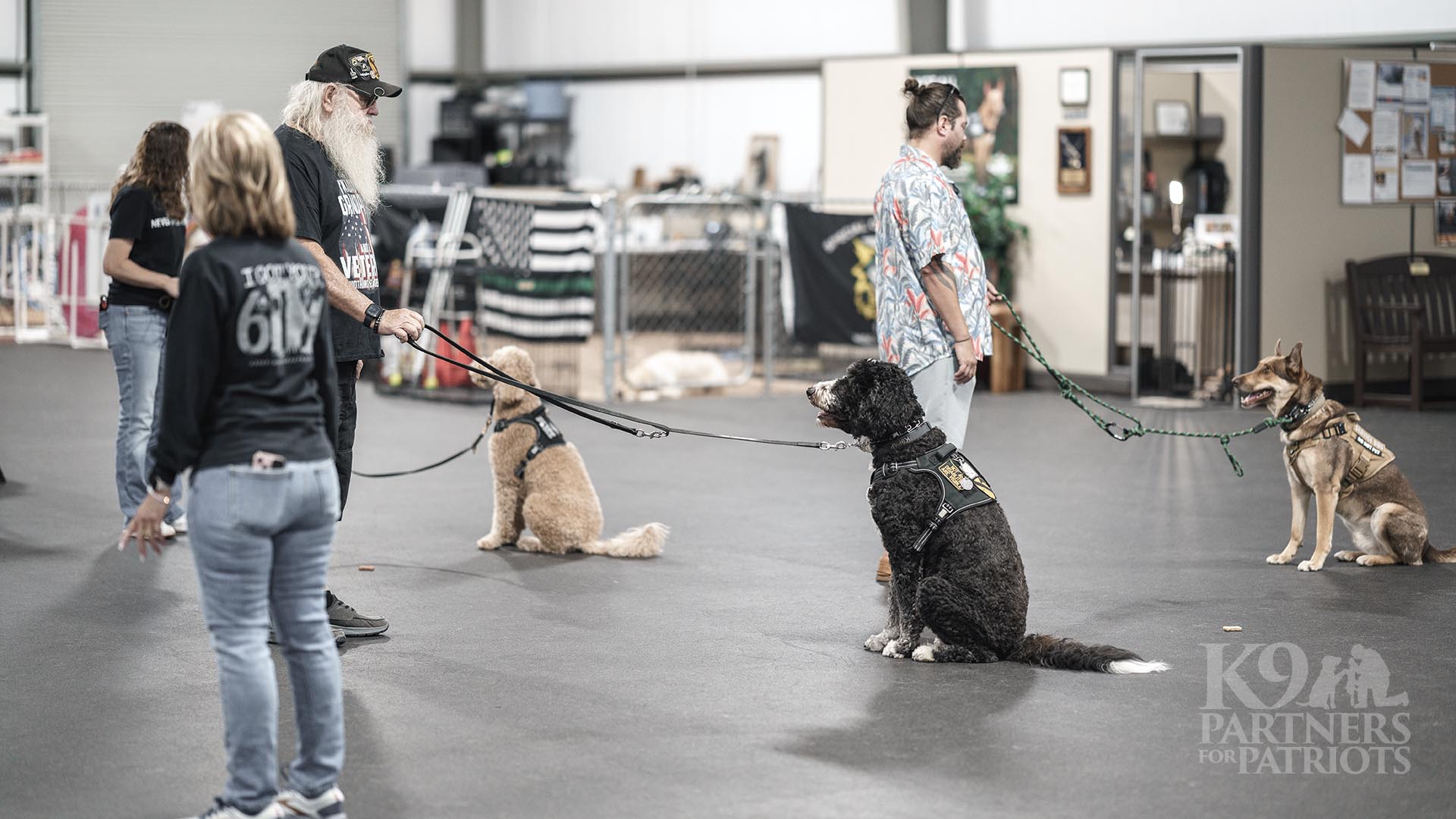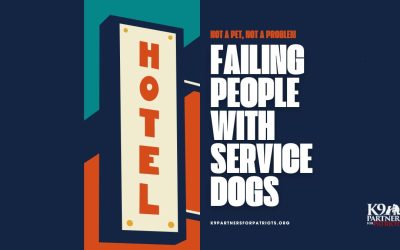Written By Frank Cohen
At some point you’ve probably heard terms like ‘service dog’, ‘therapy dog’ and ‘emotional support animal’ used interchangeably. That’s a common mistake.
Under the Americans with Disabilities Act a service animal is explicitly defined as a dog individually trained to work or perform tasks for a person with a disability. ADA law distinguishes genuine service dogs from other categories of working animals.
The key word here is ‘tasks’ –plural, specific, and directly related to the person’s disability.
A psychiatric service dog isn’t simply a well-behaved pet that provides comfort through companionship. Instead, these animals undergo extensive training to perform specific behaviors that directly mitigate their handler’s disability-related challenges.
For someone with PTSD, this might include room searches before the handler enters; creating physical barrier in crowded spaces; or interrupting nightmares through specific wake-up protocols. My service dog performs several specific tasks that directly address my conditions. When she senses my anxiety escalating –through changes in my breathing, posture or other subtle cues she’s learned to recognize—she’ll nudge me with her nose in a specific way that alerts me to employ coping strategies before reaching crisis level. In crowded environments that trigger my PTSD, she’s trained to position herself between me and other people, creating a buffer zone that allows me to navigate public spaces more comfortably.
These behaviors don’t emerge naturally from a well-socialized pet. Each response required months of specific training, consistent reinforcement, and ongoing maintenance to ensure reliability in high-stress situations.
The ADA Requires That A Person Have a Qualifying Disability
The ADA requires that a person have a qualifying disability and that the dog’s trained tasks directly relate to that disability. This creates an essential distinction from emotional support animals, which provide comfort through companionship but don’t require specific task training.
For psychiatric service dogs, qualifying disabilities typically include PTSD, severe anxiety disorders, major depressive disorder, bipolar disorder, autism spectrum disorders and other mental health conditions that substantially limit major life activities.

Frank Cohen
Author of Service Dogs for Mental Health: Breaking Barriers, Building Independence, Transforming Lives, is a proud graduate of K9 Partners for Patriots alongside his service dog. You’ll also find him serving on our Board of Directors, where he continues to support our mission in a powerful way.




